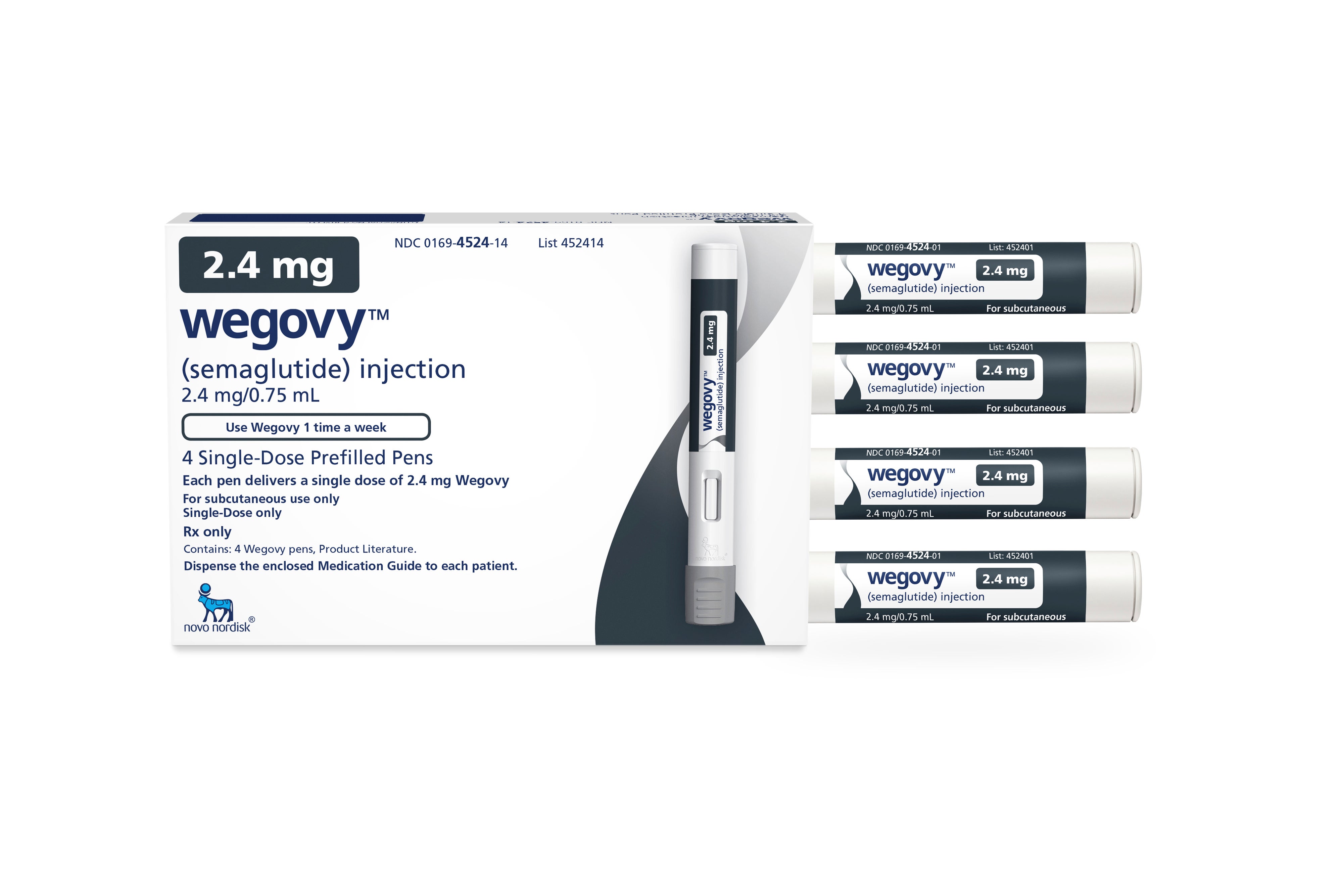People taking Wegovy and Ozempic have lower risk of suicidal thoughts vs. older drugs, study finds
A new federal study finds that people taking popular diabetes and obesity drugs Ozempic and Wegovy had a lower risk of suicidal thoughts than those taking other medications to treat the same conditions

People taking the popular diabetes and obesity drugs Ozempic and Wegovy had a lower risk of suicidal thoughts than those taking other medications to treat the same conditions, a new federal study finds.
The research, funded by the National Institutes of Health, was published Friday and comes as European and U.S. regulators look into anecdotal reports that people taking the drug, semaglutide, had thoughts of self-harm.
NIH and Case Western Reserve University researchers analyzed electronic medical records from more than 1.8 million patients prescribed semaglutide or another drug to treat obesity or diabetes between 2017 and 2022. They included about 240,000 patients treated for obesity or being overweight and nearly 1.6 million patients treated for diabetes.
They found that people taking semaglutide had a 49% to 73% lower risk of first-time or recurring suicidal thoughts than those taking another drug for those conditions during a six-month follow-up period.
The researchers called for closer evaluation of reports of suicidal thoughts linked to the drugs and for patients to be followed for a longer period of time. Their review only considered patients taking semaglutide or another drug for diabetes or obesity, not those taking semaglutide in the general population.
Study co-author Dr. Rong Xu, of Case Western, also noted obesity and diabetes are risk factors on their own for suicidal thoughts. But the study wasn’t designed to determine if the GLP-1 drugs reduced those thoughts.
The scientists launched the review after the European Medicines Agency said in July that it was reviewing about 150 reports of possible cases of self-injury and suicidal thoughts linked to semaglutide and other drugs known as GLP-1 receptor agonists. The drugs work by targeting the hormones in the gut and brain that regulate appetite and feelings of fullness. Older weight-loss drugs work differently.
In December, the EMA's drug watchdog group said it would seek more data from drugmaker Novo Nordisk about the reports.
The U.S. Food and Drug Administration also is investigating unconfirmed reports of suicidal thoughts or actions in people taking the GLP-1 drugs.
Millions of people in the U.S. are taking semaglutide, which has soared in popularity since Wegovy was approved to treat obesity in June 2021.
A spokesperson for Novo Nordisk said the new study reflects the company's data collected from large clinical trials and since the drug has been on the market — all of which showed no "causal association” between semaglutide and thoughts of suicide or self-harm.
___
The Associated Press Health and Science Department receives support from the Howard Hughes Medical Institute’s Science and Educational Media Group. The AP is solely responsible for all content.